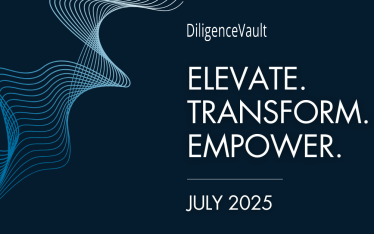Given the significant investments of time, talent and money in the ecosystem around data, there’s no question that data is poised to be one of the critical assets for the future of work. Yet in the investment management world, data management is still in its infancy, and initiatives for building data competency are just getting started.
Asset Manager Data Focus
Asset managers have seen a significant shift in focus on data and technology, predominantly around alpha generation and investing models. There is great interest in integrating alternative data sets which now comprise up to 20% of data being leveraged. AlternativeData.org gives a comprehensive listing of data providers focused on hedge funds and long-only managers. Moreover, with the digitization of the back office also gaining traction, coupled with growing data reporting demands for regulators and investors, there is a need for an integrated front-to-back data strategy. A strategy that improves alpha potential, minimizes operational and regulatory risks, and also transforms the client reporting time frame, where “very quickly” can mean minutes and seconds instead of weeks and days.
Asset Allocator Data Focus
Asset allocation is not a transactional business, but rather a relationship-oriented one. As a result, the focus on data within the overall investment process can get lost, potentially impacting investment results. This situation may provide a catalyst to accelerate the focus on collecting data and building a centralized goldmine of disparate sources of information. From the allocator perspective, the drive towards data has been slow as most investment and operations information still remains unstructured, with a heavy reliance on disparate data and documents. Digitization and centralization are the first order of business in forming a data strategy. Such a strategy may help in quantifying the cost of being wrong, or provide additional backup to endorse an existing thesis, or even uncover a blind spot.
For both asset managers and allocators, there are three key challenges to maximizing the benefits of being data competent:
- It’s available, yet not accessible: A lot of data is siloed within functional or operational dimensions. So, a critical consideration would be to break down the organizational silos and allow data to flow freely internally, so that decision making is supported by consistent and easy to access information. The end result would be a centralized data warehouse that integrates across systems, as well as transparency and access across functional areas.
- Holistic quality is crucial: With the increased flow of data, quality becomes increasingly important. Ensuring data quality is time consuming and far from easy. In addition, a good chunk of data is not in usable format. The challenge is that legacy processes do not meet the demands of the modern data set, which brings new dimensions, frequency, and techniques, particularly for unstructured data. Firms such as Crux, FirstEigen, and Hivemind are delivering technological capabilities that address data quality and normalization challenges.
- If it’s working, why change? What holds firms back from investing in a comprehensive data strategy? Past success without data and technology, as well as limited budgets (especially for asset allocators) have been the primary factors. If the incumbents in the asset management industry fail to master the data challenge, we may see some of them have their “Kodak” or “Nokia” moment. The greatest threat to asset management as debated in some industry gatherings is: What if Amazon, Google, or Microsoft were to enter the asset management business? None of the tech giants have comparable historical track records for investing in public and private markets, but they are now being considered a threat because of their unparalleled strengths in modern technology that mines and analyzes large quantities of data.
Data Strategy that is Big, Beautiful and Exciting
From the asset manager’s perspective, the benefits from a data focus are tangible with respect to performance, completely justifying investment in this area. An additional focus is the need to create productive capacity in the operational, regulatory, product development and client engagement functional areas.
From an allocator’s perspective, there’s a need for a new focus on data collection, centralization, and analytics at all stages of investment sourcing, due diligence, risk management, negotiating investment terms including fees and liquidity, and even in portfolio rebalancing.
So as an asset management industry participant, how do you strengthen your strategy around data that is not only a promise for several years into the future, but also something that has tangible outcomes for the immediate future? As the world races to be a data first world, what legacy would the existing set of investors leave for the next generation of investors? Or will current industry incumbents be left behind by kicking the data can down the road? Given the degree of change involved, an active leadership from the Chief Executive Officers and/or Chief Investment Officers is required to embrace digitization and centralization from front to back along with a mandate to invest both time and money towards this strategic goal.
Note: This blog represents the author’s personal views as a practitioner in the industry, as well as the founder of a data and tech platform that is solving for data exchange, structuring and analytics in the ecosystem of asset manager and allocator.



